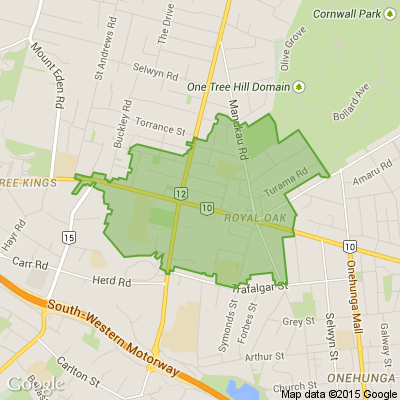Record numbers are leaving NZ – who could blame them?
Migration figures show a record number of New Zealanders are choosing not to stick around – and you don’t have to look hard to figure out why, writes Q+A presenter Jack Tame.
No data point says more about the current state of our country than the fact that record numbers of New Zealanders don’t want to be here.
Over the last two years, the quarterly release of migration statistics has steadily plotted a massive exodus of New Zealand citizens.
Once all citizen returns and departures were accounted for in the year to March 31, provisional net numbers indicated New Zealand lost more than a thousand Kiwis every week.
But why?
========
The pandemic restrictions are over and the borders have been open for New Zealanders for more than two years.
Pent-up demand for overseas adventure could explain the initial post-Covid surge in departures, and some New Zealanders who returned during the worst of Covid-19 have left again. But the more recent departures are better attributed to other factors.
As I’ve noted before, what’s perhaps most extraordinary about the huge outward migration of New Zealand citizens is it has coincided with near-record inbound migration of non-citizens.
Facing pressure from business groups amidst a global labour shortage, the previous government responded by massively relaxing immigration settings.
In the year to March 31, New Zealand recorded a net migration gain of 163,000 non-citizens.
Accounting for both the provisional citizen and non-citizen migration flows, there are 111,000 extra people in New Zealand than the year before. Add to that the births and deaths for the same period, and our overall population has increased by approximately 130,000 people in the last year.
During the same period, however, the number of consents issued for new houses dropped 25% on the previous 12 months.
As our population surges and construction slows, the average rent paid by the generation of New Zealanders most likely not to own their own homes has increased. TradeMe Property recorded a median rent increase of 8.3% in the year to March 2024 — more than double the corresponding annual increase in wages.
This renting generation, coincidentally, is the same generation most likely to have left New Zealand.
Of all migrant departures of New Zealand citizens, people between the ages of 18 and 30 made up almost 40%.
But even older New Zealanders — who are more likely to have established careers, families, and assets — are leaving in huge numbers. Accounting for all arrivals and departures, a net total of more than 7500 New Zealand citizens between the ages of 31-40 left our shores.
So, what will stem the bleed?
=======================
In the short term, at least, there is perhaps little economic reason to stay.
The new Government has moved swiftly to tighten immigration settings but, as the full impact of higher interest rates seeps through the economy, unemployment is steadily increasing.
The national unemployment rate currently sits at 4.3% and most economists expect it to climb above 5% in the coming months. The Māori unemployment rate is already at its highest point in four years at 8.2%.
Young Zealanders now find themselves competing with more people for relatively fewer houses and relatively fewer jobs.
And, as we enter a winter of economic discontent, who could blame them for leaving?
====================================
www.1news.co.nz...
====================================
Chapter Book and Tea Shop Jan-Feb 2026 Book Catalogue
📚 JAN-FEB 2026 BOOK CATALOGUE 📚
Welcome back and best wishes for 2026! The new year sees the arrival of lots of goodies including Ilona Andrews’ BEAST BUSINESS (Hidden Legacy Series—Novella), Mary Balogh’s REMEMBER THAT DAY (Ravenswood Series), Christine Feehan’s DARK JOY (Dark Carpathian Series), Jayne Ann Krentz’s THE SHOP ON HIDDEN LANE (Set in Fogg Lake), Lauren Palphreyman’s THE NIGHT PRINCE (Wolf King Series), Leigh Rivers’ INSATIABLE (Edge of Darkness Series), J.D. Robb’s STOLEN IN DEATH (In Death Series), Nalini Singh’s SUCH A PERFECT FAMILY and more. Enjoy your reading!
NB. We have temporarily sold out of Mary Balogh’s “REMEMBER THAT DAY” and we expect it to be back in stock in around two weeks’ time.
Check out the catalogue at
chapter.co.nz...
Please see p.2 for the:
• Order link for signed copies of Nalini Singh’s SUCH A PERFECT FAMILY
• Pre-order link for signed copies of Nalini Singh’s ARCHANGEL’S ETERNITY
• Details of the Romance Writers of New Zealand Short Story Contest sponsored by Chapter (in April 2026).
• Details of the Auckland Romance Readers Book Club Monthly Meetings and Auckland Romance Readers Book Club Facebook Group.
For Orders, Enquiries or to check instore dates:
✉️ info@chapter.co.nz ☎️ 09-6232319 📱 021-635027
NB. Chapter’s trading hours are Tue–Sun 10–4. We are CLOSED on Mondays.
#ChapterBookandTeaShop #Tea #TeaShop #Books #Bookshop #RomanceBookshop #RomanceFictionSpecialist #BiMonthlyBookCatalogue

Poll: 🤖 What skills do you think give a CV the ultimate edge in a robot-filled workplace?
The Reserve Bank has shared some pretty blunt advice: there’s no such thing as a “safe” job anymore 🛟😑
Robots are stepping into repetitive roles in factories, plants and warehouses. AI is taking care of the admin tasks that once filled many mid-level office jobs.
We want to know: As the world evolves, what skills do you think give a CV the ultimate edge in a robot-filled workplace?
Want to read more? The Press has you covered!

-
52.7% Human-centred experience and communication
-
14.4% Critical thinking
-
30% Resilience and adaptability
-
2.9% Other - I will share below!
Room for rent
🌿 Beautiful Private Space Available for Rent – Perfect for 2 Girls or a Couple 🌿
Located in the peaceful and family-friendly suburb of Lynfield, this warm and welcoming home offers a comfortable living space in a highly sought-after top school zone.
✨ What’s Included:
🏡 2 Spacious Bedrooms
🛁 Private Bathroom
🍳 Separate Kitchen
🛏️ 1 Bed with Mattress
🔥 Stove
📟 Microwave
Unlimited WiFi included
✔ Power & water included
✔ Bus stop in front of the house
✔ Nearby shops and supermarkets
This setup is ideal for two girls or a couple looking for a quiet, safe, and relaxed place to call home.
🌸 Enjoy living in a serene neighbourhood with a friendly community atmosphere, while still being conveniently close to schools, shops, and transport.
If you're looking for comfort, privacy, and a peaceful lifestyle — this could be your perfect new home 💛
📍 Location: Lynfield, Auckland
📩 Message for more details or to arrange a viewing. For couple $450 for one bedroom. $600 for the 2 bedroom and kitchen and bathroom. Feel free to contact me on 022-422-0145 for any other details




















 Loading…
Loading…